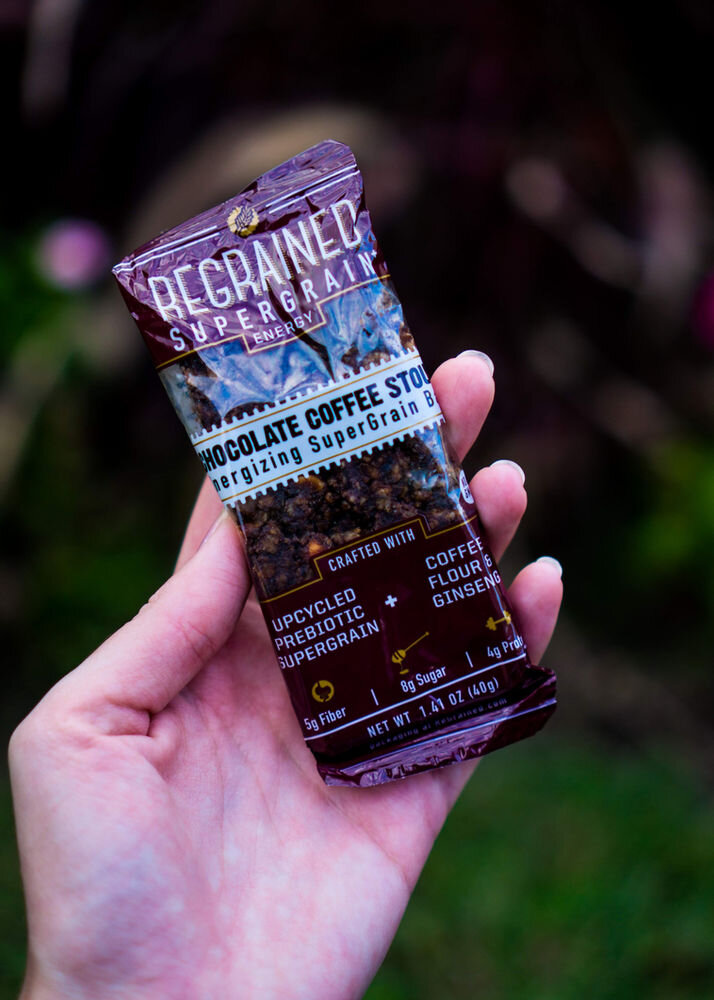Eat Beer! Q&A with spent grain upcycler, ReGrained
Note: The following article was originally published on May 18, 2019 on EatOrToss.com. Please find an excerpt below!
When Dan Kurzrock and Jordan Schwartz first brewed their own beer back in college, the amount of spent grain “waste” astounded them. The industrious students started baking the leftover slurry into bread, which they then sold to support their brewing hobby. One thing led to another and today the duo is at the helm of ReGrained, a company they founded to turn breweries’ spent grain into a flour that can form the backbone of everything from snack bars to pasta. Kurzrock, who now goes by the title Chief Grain Officer, spoke with EatOrToss about their “upcycled” product and plans to launch ReGraineries around the world. Eat...beer? Explain. So “Eat beer” was a tagline that we came up with a few years ago. The idea was to have something that created some cognitive dissonance to get people to want to learn more. It’s in reference to our business model of working with breweries and taking the nutritious grain they create as a byproduct. We’ve patented a process in partnership with the USDA to stabilize it and make something that can be used to create food. So “Eat beer” is a reference to this concept of upcycling the grain that was already used to brew.
I have to ask. If someone ate enough of your snack bars, could they get drunk?
No. they cannot. That’s exactly why we don’t put “Eat beer” on the packaging anymore. We learned that when we’re not there to explain, it’s very confusing. We had a lot of folks who thought the products would have alcohol in them or that they wouldn’t be healthy or that they would taste like beer. So the tagline “Eat beer” worked to get people’s attention, but now we’re in that next phase of education about the benefits of this stuff.
So breweries extract sugar from the grain, mostly barley, and then that goes on to ferment, which produces alcohol. It kind of looks like oatmeal when we get it fresh. It’s got all of the fiber and all of the protein that can’t end up in the beer.
You’ve made this food from a byproduct of brewing beer. Does your process have byproducts?
So people ask us all the time why we don’t isolate the protein, because protein’s really hot right now. We can do that, but if we were to do that we would have a fiber byproduct. So no, we don’t have our own byproducts by design.
Did you encounter any of your own sustainability challenges in developing your products?
Yes. Packaging. Most packaging is made from oil and ends up in landfill. The problem is it’s not only cheap, but it also works really well. The key challenge is how do you have a model that doesn’t create waste by solving it. [Editor’s note: After discovering that the bars were going stale faster than expected, ReGrained recently switched from compostable packaging to plastic and is researching new compostable wrappers for the future. Check out Kurzrock’s blog post on the difficult decision.]
Some breweries donate or sell their spent grain to farmers. Why not just do that?
It’s not going to fill landfills and there’s nothing wrong with feeding the stuff to pigs, but if we’re trying to create a world that better aligns the food we eat with the planet we love and we can recover this food and feed it directly to humans, then we’re going straight to the top of the food recovery hierarchy. We’ve already put all these resources into producing the grain, so shouldn’t we be finding the highest possible use for it all along the way?

